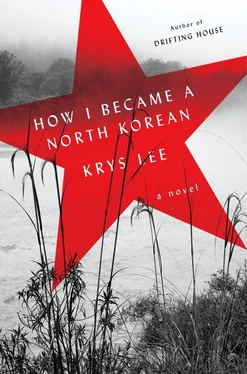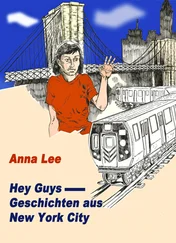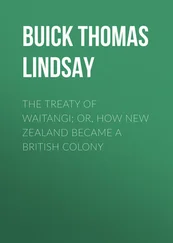“Amen!” said Namil, and shoved a tower of rice into his mouth by the spoonful, then another.
“Namil, I’ve been meaning to tell you,” I said. “I thought you might like to know, in all probability, you’re wearing a woman’s sweater.” He was also wearing bobby socks, but I let that one go.
He grinned, showing the clumps of rice stuck in the gaps of his teeth. “Really?” He rubbed at his chest with two hands. “So that’s why it felt so good.”
The others hooted. Missionary Lee gasped and Yongju, blushing, said, “This isn’t the streets,” with the sharpest look he could manage, which sent Namil diving back into the cheap ceramic bowl.
The sound of scraping chopsticks and spoons could have blocked out a marching band, but I still heard what was on their minds: When would the missionaries send them to South Korea?
Missionary Lee poured water into his bowl at the end of the meal, as if he were a Buddhist monk doing gongyang bari . After he drank the remains, he held the bowl close to his face with both hands and licked it clean, his sad bloodhound’s eyes saying, How can I waste when so many go hungry?
Yongju kept his gaze on Missionary Lee as he scraped the last grain of rice out of his bowl. “It must be nearly time for us to leave,” he said, as if it were an afterthought.
Missionary Lee flushed. “Missionary Kwon will know.” It was his go-to answer for all of Yongju’s many questions. Then he heaved himself toward the storage room, the room rumbling under his weight.
I wondered if the missionary knew more than he was letting on.
The others stretched, barely awake after their heroic struggle to stay seated all morning. The only motive for their good behavior was food. Namil’s and Bakjun’s palms were already cupped and waiting for the South Korean Choco Pies that Missionary Lee occasionally gave them if they behaved. The cheap fifty-cents-a-pop snack made me long for industrial-strength toothpaste, but as soon as the missionary came back and handed them out, even Yongju unwrapped the bright red packaging as if the chocolate-covered marshmallow cream pie was an archaeological find.
Bakjun held his up like a squirrel guarding an acorn in winter. “I remember the first time I had one of these after crossing. Never had anything so good.”
If junk food was the height of their pleasure, I wondered if it was truly possible to imagine their world across the river. I tried to participate. “I heard that Choco Pies are hot on the Pyongyang black market — the jangmadang, ” I corrected myself, and used their word for it. “Companies give them out to people from your country working in Kaesong for South Korean companies, then the sweets leak out and get resold. Some higher-ups are making a lot of cash.”
“I don’t understand a word you’re saying.” Namil cheerfully licked his fingers one by one. “It’s all Han characters to me.”
“Of course your government wouldn’t tell you about Kaesong.” I explained that a small group of their people worked for South Korean companies but were not allowed to leave the special district within Kaesong again. “All governments, ultimately, are in collusion with one another.”
“Collusion? What’s collusion?” said Namil.
“We would never work for those American lackeys!” Cheolmin the Troublemaker — my private moniker for him — said angrily in front of South Korean passport holder Missionary Lee, though his front teeth were streaked with the Choco Pie made in that very country.
Bakjun, who had slowly gone from listless to angry with his supply of cigarettes and alcohol cut off, smacked the table. “I don’t care if they give good handouts and make good snacks. I’d cut my balls off than work for an American lackey.”
The missionary’s hands flapped to his mouth. “If you don’t stop, I’ll have to discipline you! Remember, whatever you say is always in the presence of the Lord.”
“Maybe I got it wrong,” I said.
I focused on the gooey marshmallow. I tried to understand what it must be like for my friends to be inundated with so much new data. I suddenly missed my mom, and myself, the person I was with her, even with my parents’ messy, soiled marriage. Then Yongju smiled and roughed up my hair, and everything else fell away, and I only felt shame and longing.
• • •
A few days later we had our first visitors, a couple wearing the brightest shades of spring between them. Their church meant something to me. When I was fourteen, Salvation Church had sponsored a trip for disadvantaged youth to South Korea — that was my family! — and brought me to Seoul, a city that was dotted with neon red crosses. My breath had stopped when I saw the church’s vaulted ceiling, which seemed to rise higher than a canopy of redwood trees straight into the arms of God. But these representatives supporting the safe house were the last people I wanted to lay eyes on; the Christian leadership diaspora was tiny, and with my luck, they might know my mom.
We’d been scrubbed and polished before noon, our hair trimmed and nails cut. Our jerseys, shorts, and rolled-up jeans had been swapped for checkerboard button-down shirts and tan slacks. The other guys had their radar on the cake box cradled in Mrs. Bang’s arms, but you could have cut through Yongju’s tension with a knife. I hung back behind Missionary Lee, who was hovering in the rear. I wished I knew what he thought of this exhibit A we’d been turned into.
Missionary Kwon handed his jacket to Yongju after taking out the three cell phones he routinely exchanged for others. “It’s for your security,” he’d first explained in his ever-grave voice, impressing me with the serious nature of his mission. I got that the missionary needed those phones to juggle his humanitarian, religious, and gang contacts, which were required for everything from fake I.D.s to crossing the border, but I didn’t feel comfortable when he began directing us like a CEO with his employees in front of the couple.
“We feel so blessed to finally be here.” Mrs. Bang’s smile was as broad and plain as a garbanzo bean, and she wore her hair in a skullcap of curls. She set the curlicued lemon chiffon on the saang .
“I’d be thankful for a blessed kiss, one from each of you,” she added, and tapped her cheek.
Naturally we cooperated after Missionary Kwon nudged Yongju. Her husband, who’d been introduced as a church elder, looked apologetic as we stepped forward one at a time.
“We’re so excited to be here with you.” He spoke without the self-importance that most elders wore like an emperor’s robe. “We’ve been praying hard for this moment.”
His wife piped up, “God’s kingdom is for the poor and the powerless — I promise, he has special plans for you.”
She turned to Missionary Kwon. “How do you keep so many shelters functioning? It’s really fantastic, just incredible work. The Lord is truly working through you.”
“The Lord is working through all of us, all the time.”
His eyes took on a faraway look, as if he was in the presence of the Lord alone. I admired the grace that seemed to emerge from his faith; I had begun to question the nature of my own. He abruptly returned, frowning as he looked from us to Mr. and Mrs. Bang.
“Your honorable church made this venture possible by lending us the building — really the only safe place to keep boys their age. We’re merely janitors doing the necessary work. And this young man you see here keeps them in line.” Missionary Kwon gave Yongju’s shoulder a firm squeeze. “Otherwise these kinds of boys would be too dangerous to shelter.”
He nodded to Yongju, who led them down the dark corridor. “This is where we sleep.” He gestured to the neat stacks of yo and pillows in the corner and the plastic frame hanger heavy with our clothes. They continued down the hall past the room where Missionary Lee slept, then to the storage room stocked with rice, corn, and canned goods. Yongju retreated there whenever he needed privacy.
Читать дальше












